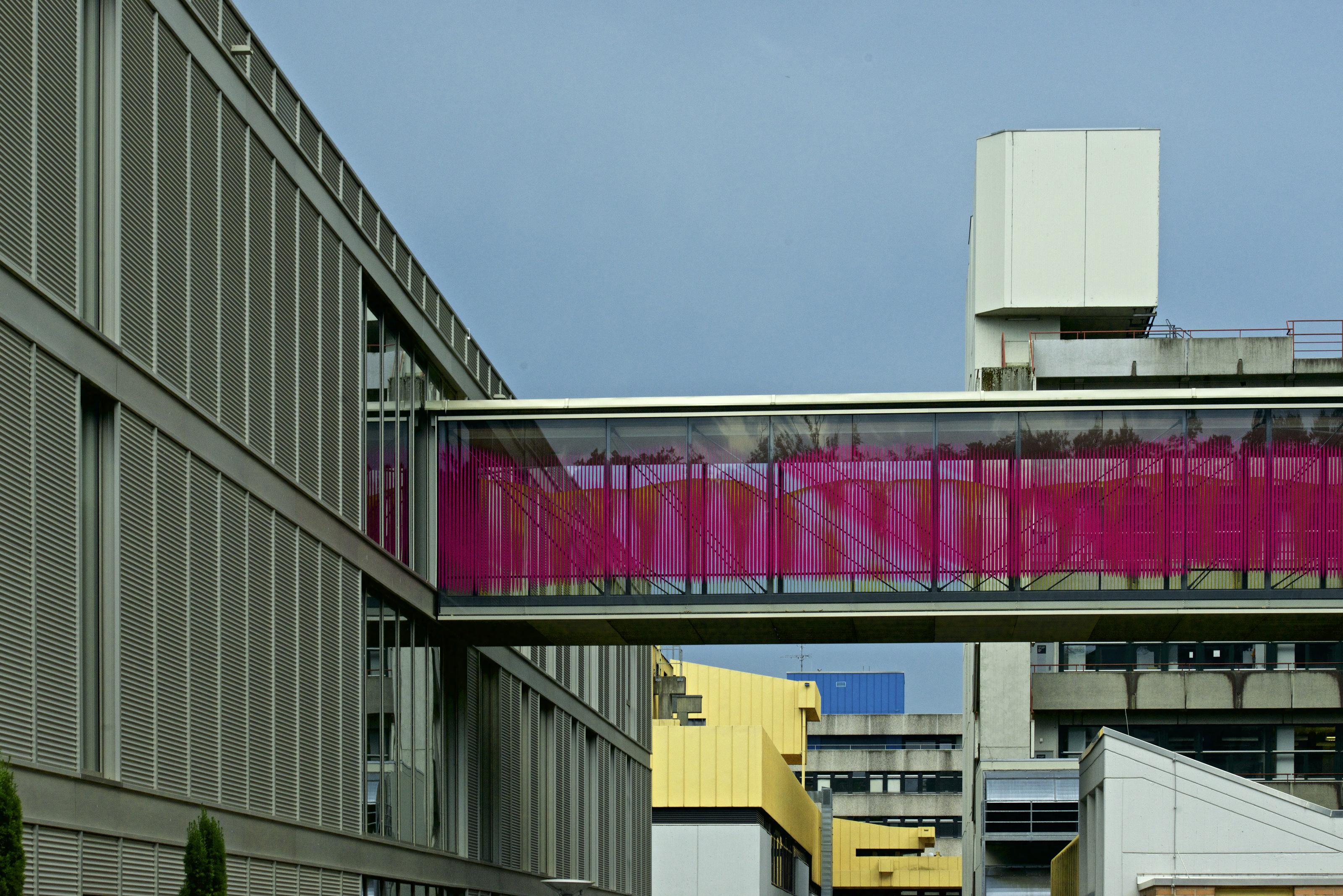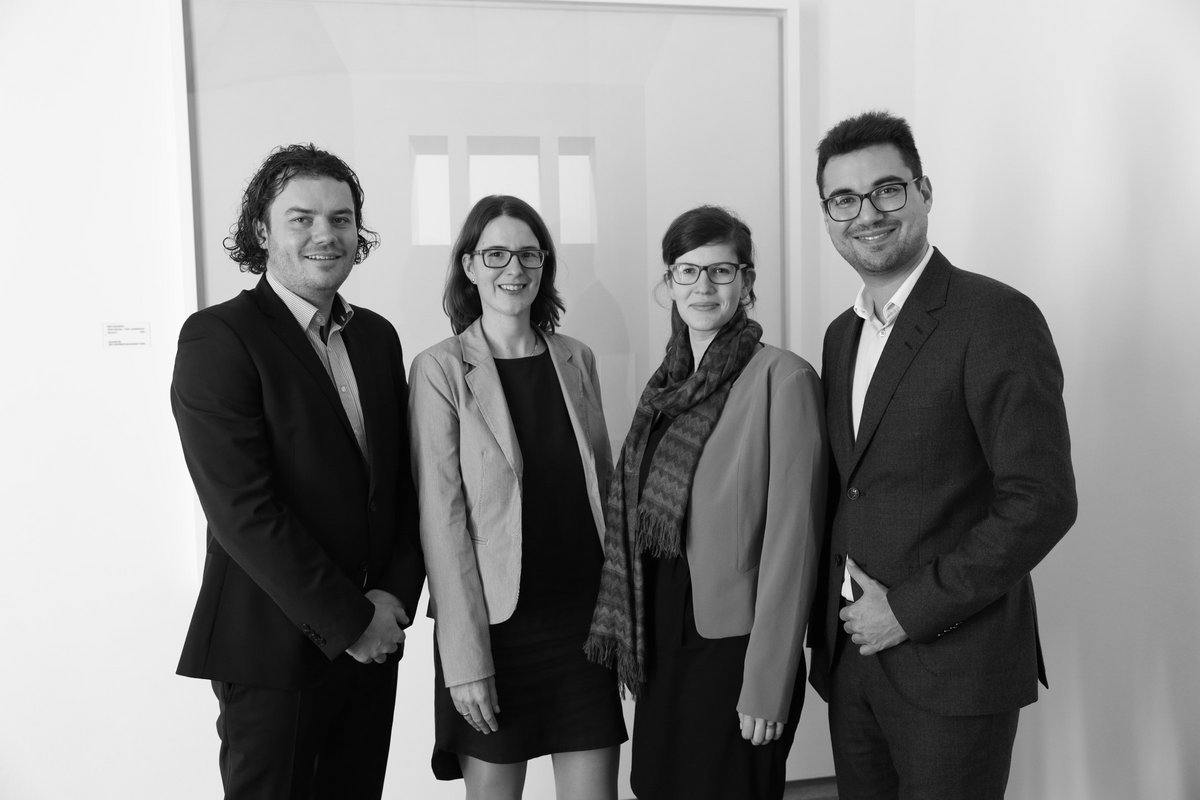
Communication, integration, friendship
Prize for open science awarded to Konstanz tandem project for refugee integration
The collaborative project run by the University of Konstanz, the administrative district office Konstanz, the Beschäftigungsgesellschaft Konstanz gGmbH and the Chamber of Commerce Hochrhein-Bodensee was awarded the Open Science Prize by the Ministry of Science, Research and the Arts Baden-Württemberg in Stuttgart on 4 December 2019. The team of awardees comprises Dr Elisabeth Maué, Barbara Ette, Paul Glaßner and Jan Vollmar.
The project TASK (Tandems of Azubis (trainees) and Students in the Konstanz region) is all about integrating refugees into the education and labour markets. “We often see that training for a profession in Germany is very challenging, especially for young refugees”, says Dr Elisabeth Maué from the Department of Economics at the University of Konstanz. “They have to adjust to the German language, professional expert language, the requirements in vocational schools and the organization of a daily routine, while also dealing with misunderstandings due to cultural differences.” This is where the award-winning project TASK comes in. The project is organized by the University of Konstanz, the Landratsamt (administrative district office) Konstanz, the Beschäftigungsgesellschaft (employment support association) Konstanz gGmbH and the IHK (Chamber of Commerce Hochrhein-Bodensee).
How does TASK help?
In the TASK project, Economics and Business Education students are paired with refugees who are starting their training or profession and support them for free. “The idea for the cooperation with the University of Konstanz came up in our network for the labour market integration of migrants in the Konstanz area”, says Barabara Ette, integration coordinator in Konstanz. “The idea emerged as we had to deal with questions such as: What can we do for trainees who have no access to state-funded measures? How can we help quickly and unbureaucratically without incurring huge costs?”, adds Paul Glaßner, vice director of the Beschäftigungsgesellschaft Landkreis Konstanz gGmbH.
In the TASK project, one trainee is paired with a student from Dr Elisabeth Maué’s seminar. The trainees will learn what they specifically need to successfully take part in and complete their training. The students help their partners, for example, with questions about the training, reviewing class material, preparing for exams or suggesting learning techniques. In case there are knowledge gaps, for example in mathematics, the students also support their protegés with catching up.
Qualification for trainees and students
The project works to prevent trainees from dropping out of their programmes, says Jan Vollmar, project manager for the integration of young refugees at the IHK Hochrhein-Bodensee: “My job is to make sure that the youngsters not only start their training, but also successfully complete it. The 1:1 setting in the joint project with the University of Konstanz opens up excellent opportunities for study as well as for intercultural exchange.”
The future vocational school teachers, in turn, benefit from their experience in relating to young refugees and having to explain curricular content in an easy-to-understand way. “They learn how best to design their learning material and how to identify and reduce learning difficulties”, explains Dr Elisabeth Maué. The students participating in the tandem project take part in academic seminars, intercultural training, a workshop on German as a foreign language and in supervision.
“It is very important to integrate people who have fled to Germany as best we can”, explains Professor Stephan Schumann, professor of economics and business education at the Department of Economics and co-initiator of the project. “Education, or in this case, vocational education, plays a crucial role. For me as a researcher, it is a matter close to my heart to apply the knowledge generated here at the university in the real world.”
The Open Science Prize was awarded by the Ministry of Science, Research and the Arts Baden-Württemberg in 2019 for the first time. It recognizes outstanding projects that connect science and society in an exemplary way.
Key facts:
- Open Science Prize by the Ministry of Science, Research and the Arts Baden-Württemberg for the Konstanz tandem project for integrating refugees in the education and labour markets.
- The University of Konstanz receives this prize along with the administrative district office Konstanz, the Beschäftigungsgesellschaft Konstanz gGmbH and the Chamber of Commerce Hochrhein-Bodensee.
- Prize money: 50,000 euros
- The award ceremony took place in Stuttgart on 04 December 2019.
- The Open Science Prize was awarded in 2019 for the first time and recognizes outstanding projects that connect science and society in an exemplary way.
- In the winter semester 2018/2019, 22 tandems were established, 51 in the summer semester 2019. Currently, 24 tandems are studying and working together. The project will be continued in the next summer semester. The Konstanz Chamber of Skilled Crafts (HWK) joined the TASK project as a cooperation partner in the winter semester 2019/2020.

